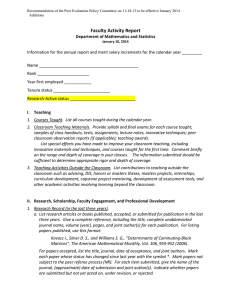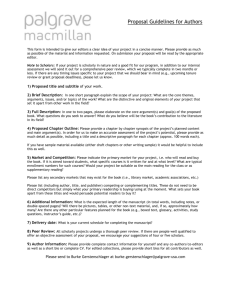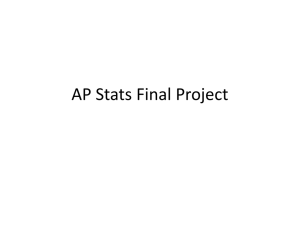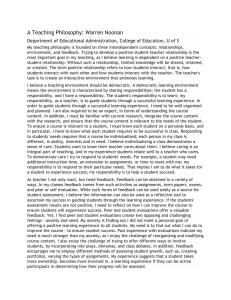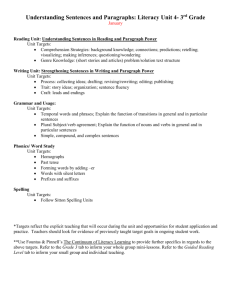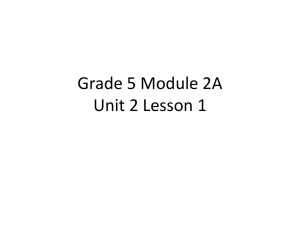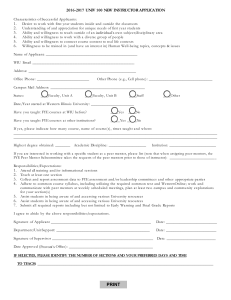Peer edit
advertisement
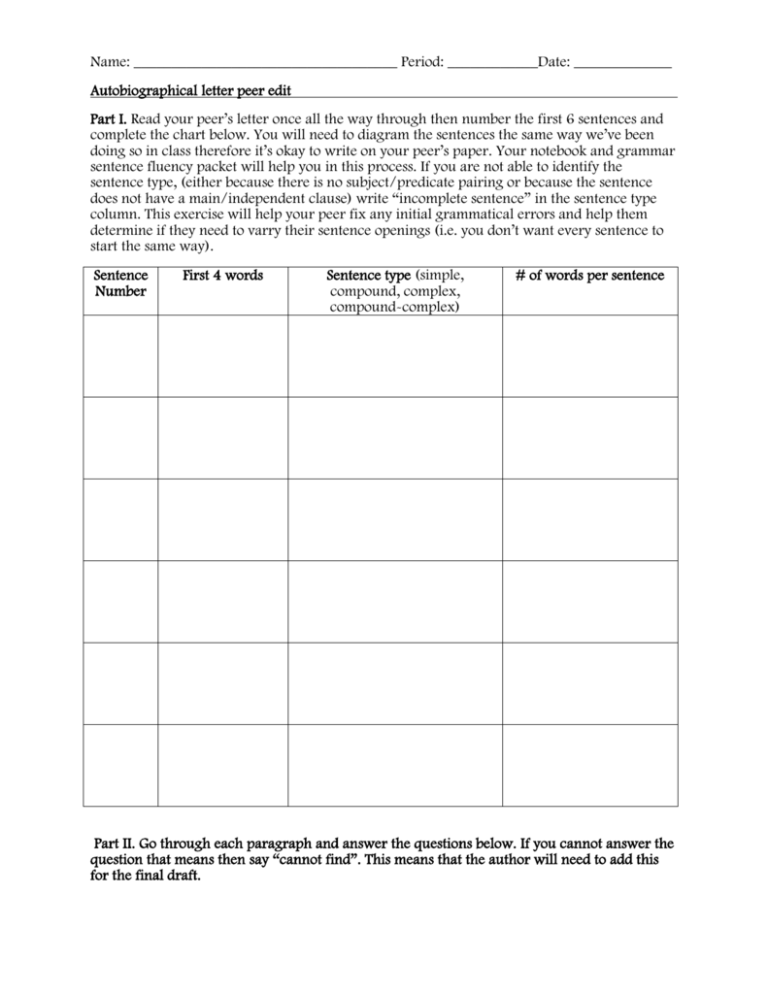
Name: ___________________________________ Period: ____________Date: _____________ Autobiographical letter peer edit Part I. Read your peer’s letter once all the way through then number the first 6 sentences and complete the chart below. You will need to diagram the sentences the same way we’ve been doing so in class therefore it’s okay to write on your peer’s paper. Your notebook and grammar sentence fluency packet will help you in this process. If you are not able to identify the sentence type, (either because there is no subject/predicate pairing or because the sentence does not have a main/independent clause) write “incomplete sentence” in the sentence type column. This exercise will help your peer fix any initial grammatical errors and help them determine if they need to varry their sentence openings (i.e. you don’t want every sentence to start the same way). Sentence Number First 4 words Sentence type (simple, compound, complex, compound-complex) # of words per sentence Part II. Go through each paragraph and answer the questions below. If you cannot answer the question that means then say “cannot find”. This means that the author will need to add this for the final draft. Introdcution a) What are the life lessons this person learned? What are his/her future goals? Body paragraph # 2 b) How was the first life lesson taught? (learning experience) c) What is the evidence that the lesson was taught? Body paragraph # 3 d) How was the second life lesson taught? e) What is the evidence that the lesson was taught? f) What interests will help the author pursue his/her future goals? g) Does the author connect his/her life lessons to future goals? If, yes, how so? If he/she does not connect. Offer suggestions to help make connections. h) Finally, make sure the letter meets these basic requirements. Circle what the author needs to add/fix 12-point, easy-to-read font Double spaced Heading on LEFT-hand side of paper Letter format with greeting and closing 1” margins No slang (So...coulda, woulda, shoulda, kinda, like, sorta, etc) Grammatically correct – sentences make sense and are correctly punctuated Correct spelling Variety of diction (word choice)
